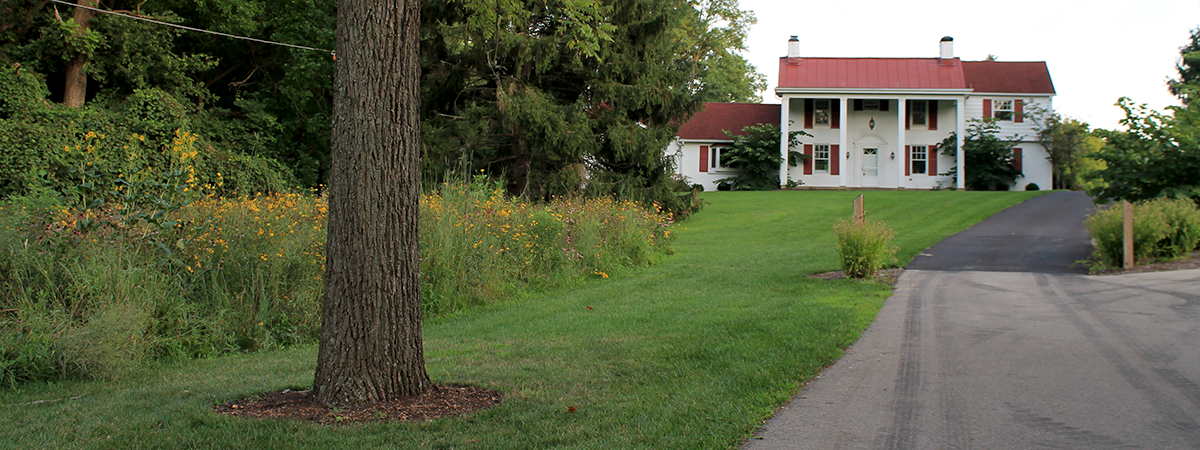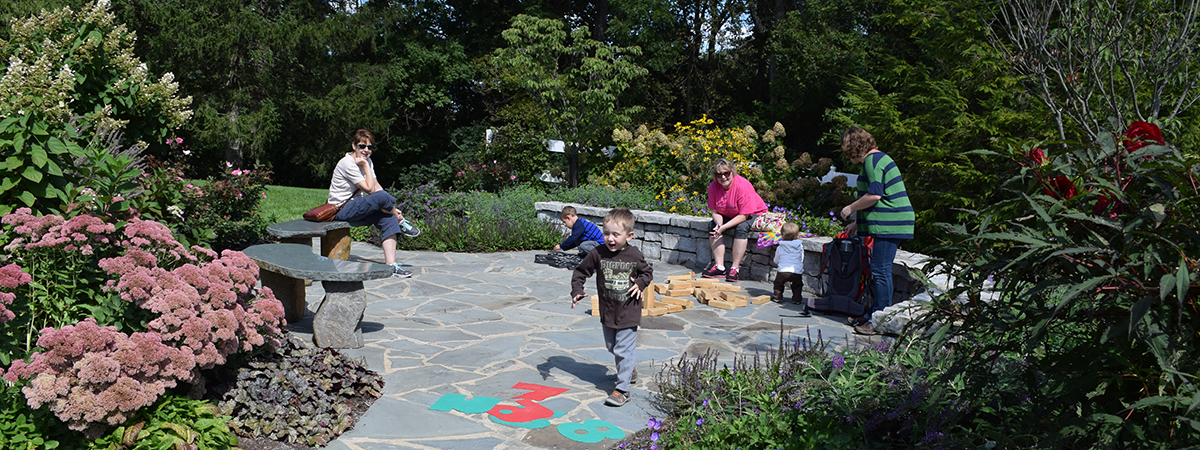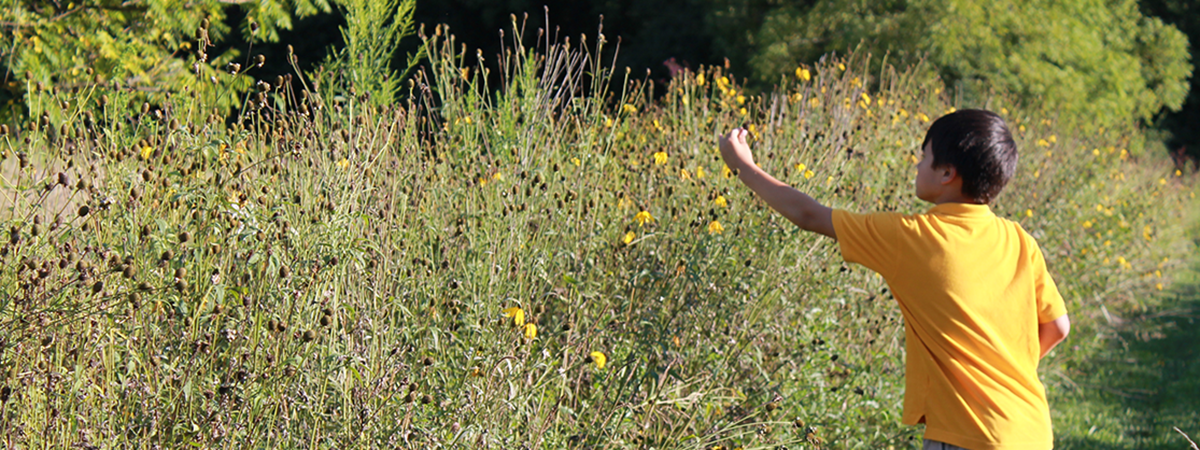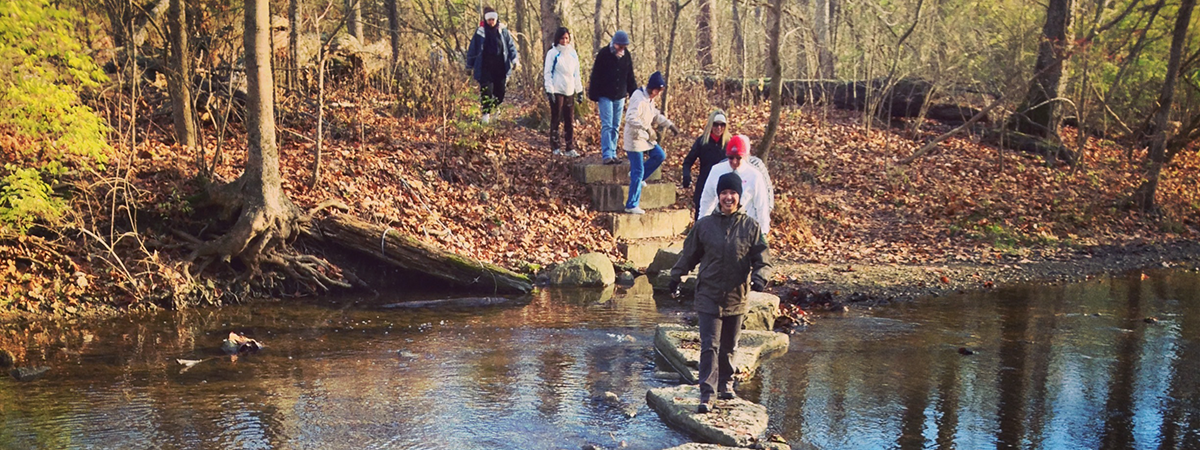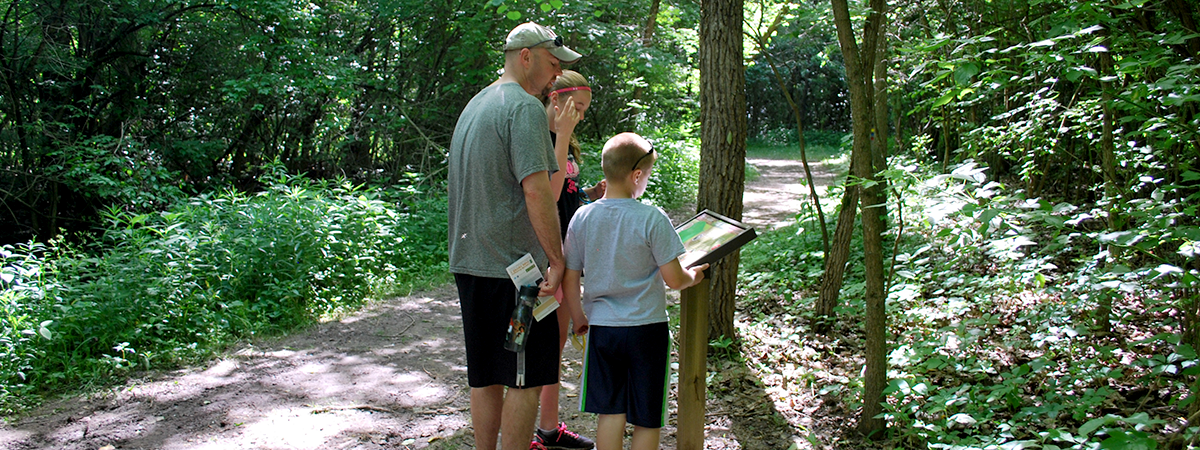Bill Yeck Park
Nature Park / 194.352 acres
Hours
The park is open during daylight hours.
Location
Rooks Mill Entrance, 8798 Rooks Mill Ln.
Smith House Entrance, 2230 E. Centerville Station Rd.
McGuffey Meadow Entrance, 7893 Wilmington-Dayton Rd.
Download a trail map (PDF updated 1-17-24) >
Pet Policy
Domesticated animals are permitted if they are controlled at all times on a visible leash not more than eight feet long.
About the Park
Bill Yeck Park is a 194-acre natural area along 1.75 miles of Sugar Creek. The park is treasured by hikers, bird watchers and nature enthusiasts. It harbors many rare species of plant life, providing a home to a variety of animals in every season. Fossils from the Ordovician period can be found in Sugar Creek which flows through the park. The park connects with other parks and wildlife areas creating a large corridor of green space that extends from St. Leonard Center to the Little Miami River. This unbroken wooded area makes the park's wildlife abundant and varied.
Another feature of the park is the Tri-centennial Time Trail. Established during the Centerville-Washington Township bi-centennial in 1996, the time trail is a tract of land representing 100 years of natural succession. Each year another unmown section is added, creating a trail that shows how a field turns into a forest.
The latest addition to the park is the former Victor and Mary Jane Smith property along Centerville Station Road. The 37-acre site includes a historic home, meadow and woods.
The Park District offers environmental education programs for all ages throughout the year at Bill Yeck Park. Parking is available along Rooks Mill Lane, at the Wilmington-Dayton Road entrance, at the Smith entrance on Centerville Station Road and at the adjacent Forest Field Park.
A bench swing and a natural play area are located in the park at the end of Parkhaven Point.
Features
Apiary
Fire Circle
Hiking Trails
Historic Home
Native Seed Nursery
Natural Play Area (Parkhaven entrance)
Owlexander's Tree Trek Nature Literature Trail (Rooks Mill entrance, brown trail)
Parking Lot
Picnic Tables
Portable Restroom (Wilmington entrance)
Rain Garden
Restroom (Smith entrance)
Shelter (large, non-reservable at Smith entrance)
Sled Hills
Stream
History
Bill Yeck Park was originally named Sugar Valley Park. The name was changed in 1996 in honor of William S. Yeck, the Father of the Park District. Bill's main interest was in nature parks and he spent a lot of time in this park.
As you hike through the park, you may find evidence of what this area was like in the 1800's. Standing on the observation deck at Rooks Mill Lane, look across the creek to see the former location of the J. Murphy sawmill which was built around 1830. Look up at the flat area on the other side of the creek to see where the mill race used to power the mill was located. Hike the yellow trail and discover the Abner Stevens well and cabin site, once situated by a lost road that ran from Sugar Ridge Lane along the creek to the 1817 Neil-Tucker Grist Mill north of the Park. The well's above-ground wall was rebuilt in 1984. In the far northwest corner of the park is another abandoned well on the Thomas Miller property whose dwelling was located here in 1851.
Note: History courtesy of Pat Aldrich, Centerville-Washington History
Future Plans
The Centerville-Washington Park District initiated a trail master plan as a priority from the CWPD 2016-2019 Strategic Plan. The goal of the project was to analyze the environmental, ecological and experiential aspects of Bill Yeck Park’s trail system and develop recommendations for how it should evolve in future years. A consultant team of landscape architects, ecological scientists and trail builders conducted various site visits throughout 2018 and facilitated a public engagement strategy to develop a baseline understanding of the park and its users. At the conclusion of the planning effort, a Bill Yeck Park Trail Master Plan was written to summarize the site observations and public feedback and propose recommendations for the future of the park’s trail system.
Read the Bill Yeck Park Trail Master Plan Executive Summary (PDF) >

